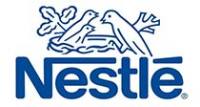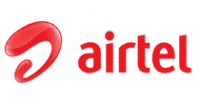
+1 518 302 6818
kyle.hallner@getctn.com

+44 7723 465323
murat.aydin@getctn.com

+1 518 302 6818
kyle.hallner@getctn.com

+971 4230 6314
li.wei@getctn.com

+31 970 1025 5535
sofia.ricci@getctn.com

+31 970 1025 5535
emilie.dubois@getctn.com

+31 970 1025 5535
lukas.muller@getctn.com

+44 7723 465323
carlos.hernandez@getctn.com

+44 7723 465323
olivia.brown@getctn.com

+31 970 1025 5535
emma.peeters@getctn.com

+971 4230 6314
takahashi.hiroshi@getctn.com

+31 970 1025 5535
anna.devries@getctn.com

+91 99877 27960
alamgir.binansar@getctn.com

+971 4230 6314
sara.almulla@getctn.com

+44 7723 465323
mikko.makela@getctn.com

+44 7723 465323
liam.murphy@getctn.com

+44 7723 465323
lerato.molefe@getctn.com

+44 7723 465323
kurt.schmidt@getctn.com

+44 7723 465323
cheng.wei.lim@getctn.com

+20 109 400 1060
ahmed.morsi@getctn.com

+44 7723 465323
emeka.nwosu@getctn.com

+44 7723 465323
minjae.choi@getctn.com

+44 7723 465323
rocky.bujjaman@getctn.com

+44 7723 465323
khan.malik@getctn.com

+44 7723 465323
nicholas.rocky@getctn.com

+44 7723 465323
chloe.thompson@getctn.com

+44 7723 465323
erik.dener@getctn.com

+966 566050151
fahd.elkhaldy@getctn.com

What is SONCAP?
SONCAP is a Nigerian import commodity certification management policy carried out by SON – the Standard Organization of Nigeria. SON is in charge of developing and enforcing quality standards for both domestically produced commodities and imported items.
The implementation of the mandatory conformity assessment procedure referred to as SONCAP is to regulate products exported to the country in order to make sure that they adhere to the national technical standards or other international standards that have been approved for implementation to protect Nigerian consumers from unsafe products or goods that do not meet the standards.
A SONCAP certificate is a legally required document for regulated products to pass through Nigerian customs clearing procedures. Lack of a SONCAP certificate will result in a delay in the clearance of regulated products through customs or a refusal to let them into the Nigerian domestic market.
Procedure
Applying for SONCAP certification when exporting to Nigeria for the first time involves two processes.
1. Obtain a SONCAP PC certificate (used for Nigerian local banks to apply for Form M)
2. Examine the SONCAP PC certificate that has been completed, then apply for a single batch of SONCAP SC customs clearing certificates.
The exporter should first apply for the PC certificate, and only after receiving the PC certificate should they then apply for the SC certificate.
After the PC certificate has been processed, it is given to the Nigerian importer, who then uses the PC certificate to apply for the Form M form through their local bank. Once the Form M form has been obtained, the exporter submits an application for the SONCAP certificate along with the Form M form and the processed PC certificate.
Nigerian SONCAP certification is mainly divided into three steps:
Step 1: The product is submitted to be sampled for product testing so that a test report can be generated that meets the standards of Nigeria.
Step 2: With the completed test report, application form, product images, and ISO system documentation, apply for a PC registration certificate.
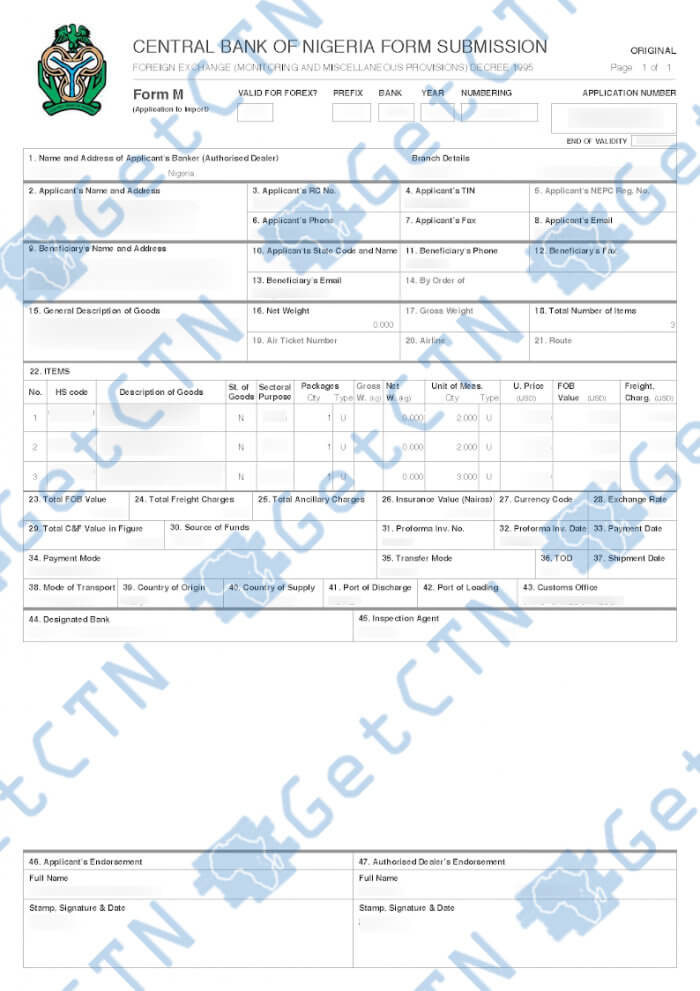
Step 1 is to apply for the SONCAP PC product registration certificate, you need to provide the following information:
- RFPC application form
- Physical photos of the product
- A qualified test report issued by a laboratory with ISO 17025 qualification
- Factory ISO9001 system certificate (if any)
Step 2 is to apply for the Soncap SC certificate. The following information is required:
- RFSC Application Form
- Packing List
- Proforma Invoice
- FORM M Form
- Bill of Lading
- Product Physical Photos, Packing Photos (if necessary)
- Controlled products will have their customs clearance delayed if they lack SONCAP certificates.
- The agency can not issue the SONCAP SC certificate more than two months after the bill of lading is issued.
- Not having the SONCAP certificates may also prohibit the controlled products from entering the Nigerian domestic market.
FAQs related to Nigeria SONCAP Certificate
For products being shipped to the Middle East and Africa, a Certificate of Conformity (CoC) is a requirement for customs clearance. There are various names for it around the world; in Nigeria, it is known as SONCAP certification.
As a result, in Nigeria, SONCAP certification and COC certification are the same.
The Federal Government of Nigeria established the SON Conformity Assessment Program (SONCAP) as a mandated program to guarantee the quality and standards of all imported regulated goods.
The importer must activate the SONCAP PC and SC certificates after getting them; the PC and SC certificates can then be utilized as usual.
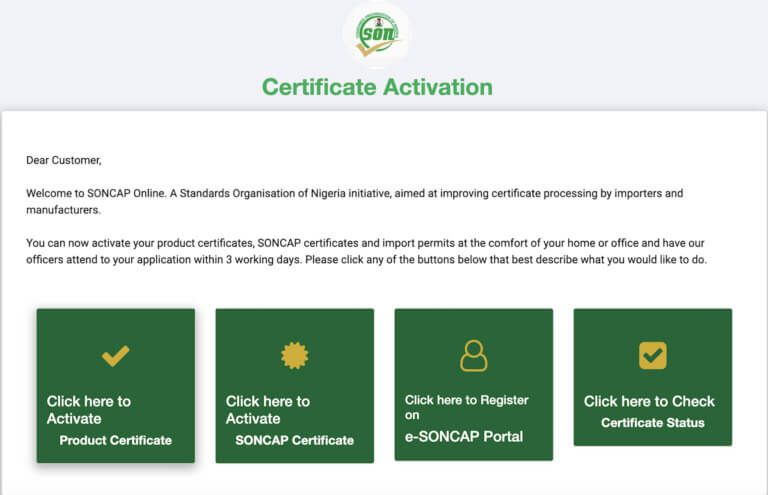
PC certificate activation
Please select the first “Product Certificate”
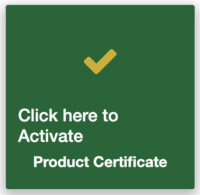
Fill in the importer TIN number (TIN is the import license)
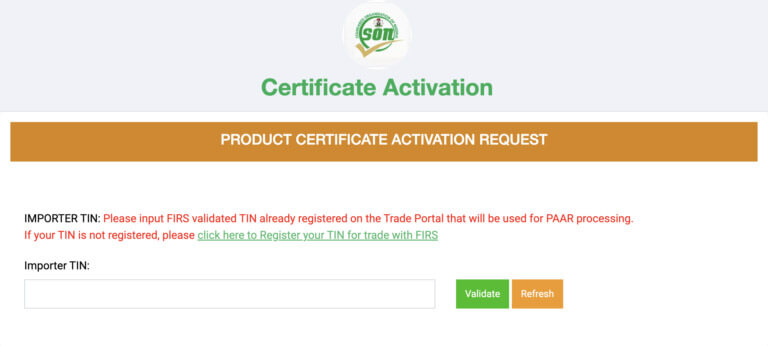
After entering the registration page, fill in the required information and click Submit
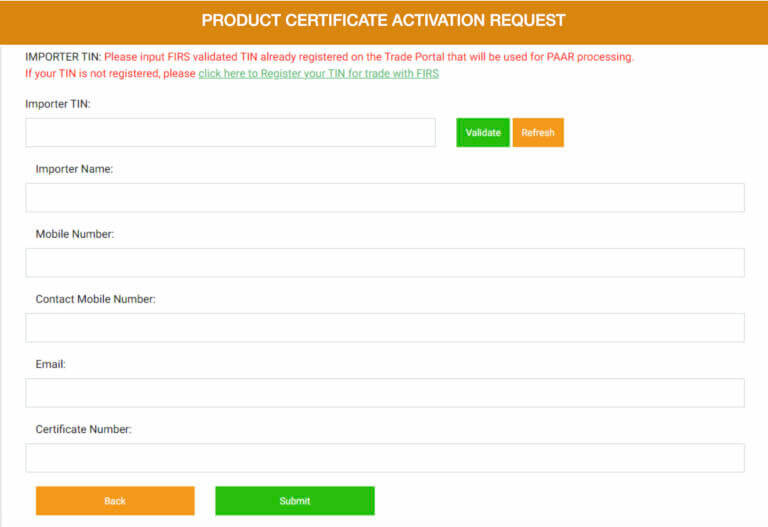
SC certificate activation
Please select the second “SONCAP Certificate”
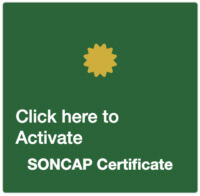
The activation process is the same as the PC activation process
The SONCAP certificate is a certificate of compliance, and the importer must present it at the Nigerian port in order to enjoy a hassle-free customs clearance.
The SONCAP SC certificate provides proof that the batch of goods meets Nigerian standards and is intended for one use.
General FAQs
GetCTN is an independent consulting firm to help you to get the necessary CTN certificates to many African Countries. GetCTN is an international company that is based in USA and UAE.
Soncap PC and Soncap SC certifications are the two types of Soncap certification.
SC is a single-batch customs clearance certificate, which is a one-time certificate. PC is a registration certificate good for one year that is given to Nigerian local importers to apply for FormM.
This certificate is used to handle the customs clearance of goods. Customs has the authority to refuse to allow items to enter the country without this certificate.
In short: The SONCAP is a mandatory document required for customs clearance in Nigeria.
Do you provide the Certificate of Conformity (CoC) for other countries?
We provide the Certificate of Conformity for the following countries. Get in touch to learn more on each procedure.
- Libya CoC
- Algeria CoC
- Burundi CoC
- Ethiopia CoC
- Gabon CoC
- Haiti CoC
- Cameroon CoC
- Qatar CoC
- Kenya CoC
- Kuwait (KUCAS)
- Nigeria (SONCAP)
- Central African Republic CoC
- Sudan CoC
- Saudi Arabia (SABER)
- Uganda CoC
- Zanzibar CoC
- Ivory Coast (Côte d’Ivoire)
- Zimbabwe CoC
A bill of lading (BL or BoL) is a legal document issued by a carrier to a shipper that details the type, quantity, and destination of the goods being carried.




